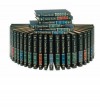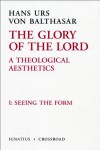Divine Judgment

What a joy to read literature that is not only well executed, but beautiful in spirit! Dante's work is one of the pillars of western literature, and justly so. Conceived and executed in a poetical form called "terza rima" and functioning on multiple levels of meaning simultaneously, the three books of the "Commedia" are a microcosm of human spiritual life. Care is lavished on every detail from the geography to the astronomy and everything in between. It is a monumental achievement, encompassing theology, politics, aesthetics, literary criticism, science, philosophy, metaphysics...you name it.
The first book, the Inferno, chronicles the beginning of Dante's spiritual odyssey. He wakes one day in the middle of his life to discover that he is lost in a dark forest and surrounded by mortal dangers. Against all hope, rescue comes in the form of the ancient poet Virgil, who has been commissioned by Heaven to lead Dante back to the true path. Virgil, the personification of pagan wisdom, must lead Dante down through the nine circles of Hell where he will begin to learn the wisdom that leads back to life, which will ultimately be found only in Christ. Each circle in Hell is the final resting place of souls who have died in their sins, the punishments at each level being perfectly suited to the sin that defined the earthly life of the soul. The sins at each circle are progressively more vile than the circle before, and the punishments grow more horrible and gruesome.
Though the tortures of Hell are graphically described, Dante is not gratuitous. He is no medieval Quentin Tarantino. Part of his purpose is to reveal the hideous nature of evil and expose the ugliness of the soul that remains unrepentant and self-interested even after death. Dante's theology is solid and Hell is the place where true, lasting judgment is meted out and justice is finally satisfied. These are not popular ideas in our politically correct, selectively tolerant society. But exactly what have these flaccid new ideologies done for us except to shackle our thoughts, and silence dissenting voices? Give me Dante any day.
Sayers' translation is magnificent. She reproduces both the meter and rhyme, giving those of us who do not know Italian a taste of what the original must be like. Her explanatory notes provide much needed details that enrich the reading experience. Even more helpful was her dedication to Charles Williams which, in turn, led me to read "The Figure of Beatrice". It was there that Dante's meaning became more clear to me.







